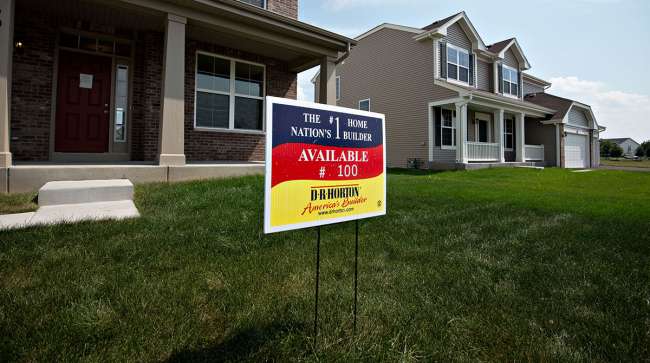Home Sales Dropped in July After Solid First-Half Run

A decline in U.S. purchases of new homes in July may be a sign the industry took a breather following an even stronger run of sales than previously reported, according to government data Aug. 23.
Highlights of July New Home Sales
• Single-family home sales fell 9.4% month over month to 571,000 annualized pace (estimated 610,000), lowest in 2017, after 630,000 rate (revised from 610,000).
• Combined upward revisions to April-June figures were 46,000.
• Median sales price increased 6.3% y/y to $313,700.
Key Takeaways
The slowdown as the second half got under way may reflect lack of affordability and low inventory, which have been constraints, especially for younger, first-time buyers who find it harder to get housing-related credit.
At the same time, the cooling is unlikely to derail what’s been a gradual uptrend in sales that’s helping the housing market make progress. The revisions for the previous three months show that demand has been supported by steady hiring and borrowing costs still near record lows.
Shortages of previously owned houses on the market may also drive some prospective buyers to look at new properties.
New-home sales, which account for about 10% of the market, are tabulated when contracts get signed. They are considered a timelier barometer of the residential market than purchases of existing homes, which are calculated when a contract closes. The National Association of Realtors will release those latest figures on Aug. 24.
Other Details
• Supply of homes at current sales rate rose to 5.8 months from 5.2 months; 276,000 new houses were on market at end of July.
• Purchases fell in three of four U.S. regions, including a 23.8% decrease in Northeast and 21.3% drop in West; Midwest posted a 6.2% gain, while the largest region, the South, had a 4.1% decline.
• Commerce Department said there was 90% confidence that the change in sales last month ranged from a 22.3% drop to a 3.5% increase, underscoring the volatility of the data
• Report released jointly by the Census Bureau and Department of Housing and Urban Development in Washington.
With assistance by Alexandre Tanzi

